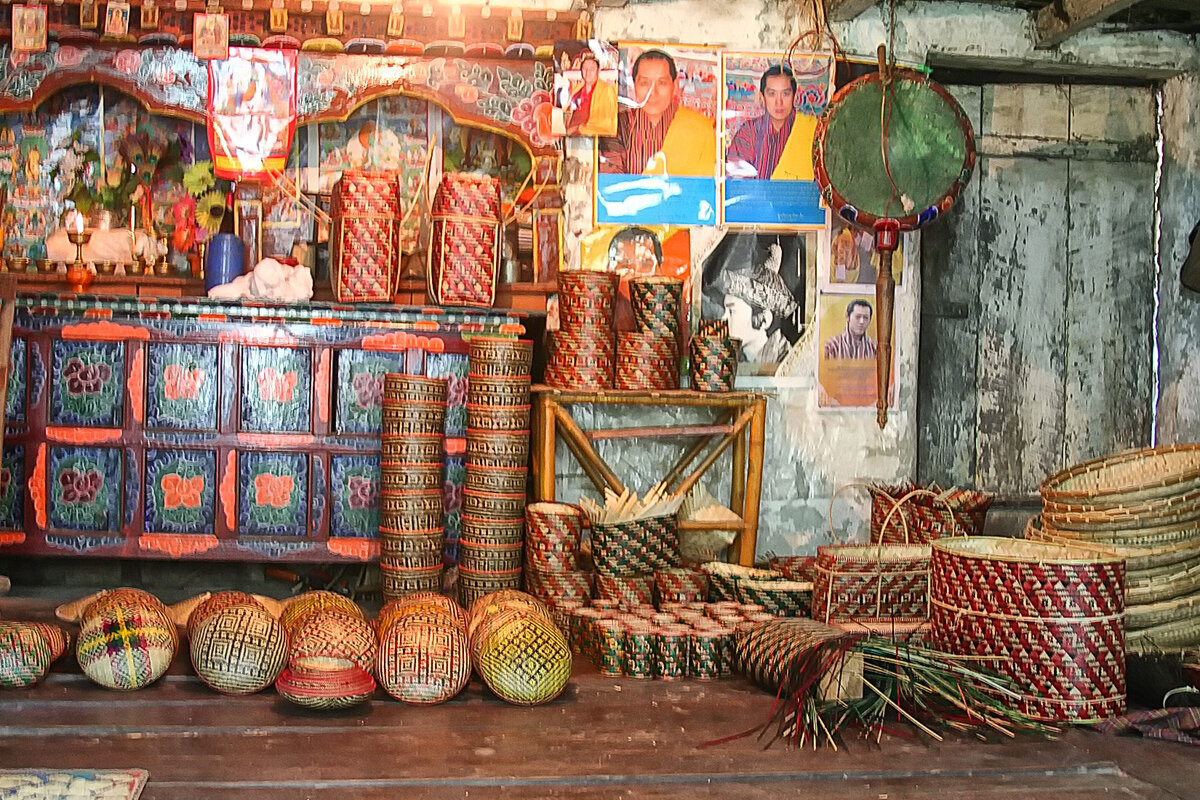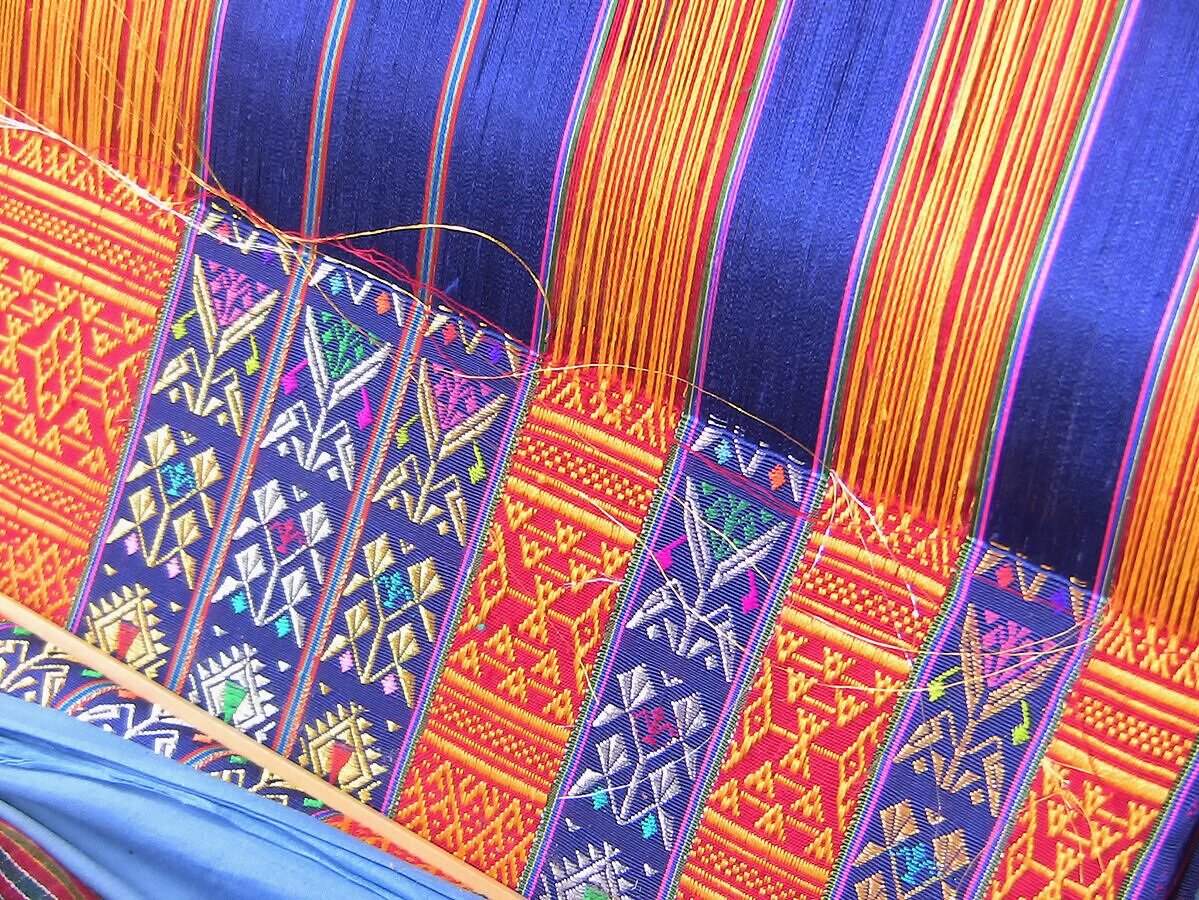
Behind the Art: Bhutan
A life-changing country
A stack of bulging passports jams two cubbyholes of my barrel rolltop desk. I survived a plane crash in the Namib Rand desert and led 17 intrepid travelers through Pakistan’s Khunjerab Pass (close to the border of Afghanistan) into the safety of China the day after 9/11. But, there is one country that has shaped my life more than any other: Bhutan. Its visa stamp is easy to recognize: look for the dorji, or thunderbolt, which symbolizes the power of Buddhism.
These pages about the artisans of Bhutan whose beautiful, painstaking crafts are threatened with extinction, evolved out of my travel experiences in Bhutan, a country I’ve come to know intimately since the first day I flew into the Kingdom in 1992. I gasped at the 20,000-foot snow-covered mountains all around us and suddenly the white opaqueness disappeared and a red-banded fortress monastery loomed high on a ridge, and down below golden rice terraces appeared with clusters of two-story rammed earth farmhouses topped with shingled roofs sprinkled with red peppers. A glacial blue river sliced through this patchwork quilt of colors. Could this be the legendary land of Shangri-la?
Artisans and their arts and crafts
As I would discover, tucked away in poor hamlets and remote villages of eastern Bhutan, largely outside the average traveler’s itinerary, lies the hidden world of the artisan. Living in isolated villages that may have been electrified as recently as 2016, several days’ trek from a main road, master artisans create the 13 classical crafts of Bhutan: painting; calligraphy; sculpture; metal casting; carpentry, blacksmithing; gold and silverwork; bamboo and container work; weaving; woodturning and lacquering; pottery; masonry, and paper-making. As many of the artisans are illiterate, nothing is written down. Even the formulas for dyeing, or the designs and colors displayed in complex weavings or the artist’s conception of a festival mask, are all retained in someone's memory and passed down orally from generation to generation. Once these masters die, the knowledge is lost forever and can never be retrieved.
We hope to have the complete Bhutan section up soon


